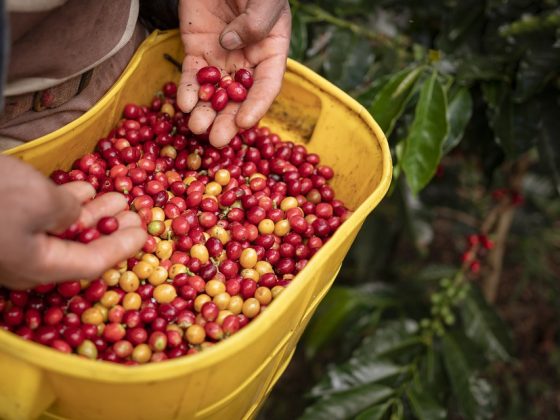From Ethiopia to Colombia: Coffee Culture Across Continents
Coffee is a beloved beverage that has been enjoyed by people around the world for centuries. From its origins in Ethiopia to its popularity in countries like Colombia, coffee culture has spread across continents, bringing people together over a shared love for the rich, complex flavors of this caffeinated drink.
Ethiopia: The Birthplace of Coffee
Ethiopia is widely regarded as the birthplace of coffee, with a long history of coffee cultivation dating back to the 9th century. Legend has it that a young goatherd named Kaldi discovered the stimulating effects of coffee beans after his goats ate them and became energized. Intrigued by this discovery, Kaldi shared the beans with a local monk, who brewed them into a beverage that helped him stay awake during long hours of prayer.
The practice of brewing coffee soon spread throughout Ethiopia, with coffee ceremonies becoming an integral part of Ethiopian culture. These ceremonies involve roasting green coffee beans, grinding them into a fine powder, and brewing them in a traditional clay pot called a jebena. The brewed coffee is then poured into small cups and served to guests, often with traditional snacks like roasted barley or popcorn.
Ethiopian coffee is known for its unique flavors and aromas, with each region producing beans with distinct characteristics. Some popular Ethiopian coffee varietals include Sidamo, Yirgacheffe, and Harrar, each with its own flavor profile ranging from fruity and floral to earthy and spicy.
Colombia: A Global Coffee Powerhouse
Colombia is another country with a rich coffee culture, known for producing high-quality Arabica beans that are prized by coffee lovers around the world. Coffee cultivation in Colombia began in the early 19th century, and the country quickly became one of the largest coffee producers in the world.
Colombian coffee is renowned for its smooth, mild flavor and balanced acidity, with beans grown in regions like Antioquia, Huila, and Nariño fetching premium prices on the international market. The Colombian coffee industry is heavily regulated by the government, with strict quality standards in place to ensure that only the best beans make it to market.
In Colombia, coffee is more than just a beverage – it is a way of life. Coffee farmers take great pride in their craft, carefully tending to their crops and harvesting the beans by hand to ensure superior quality. Coffee is also a social lubricant in Colombian culture, with coffee breaks and gatherings with friends and family revolving around the shared enjoyment of a freshly brewed cup.
Coffee Culture Across Continents
Despite their distinct histories and traditions, the coffee cultures of Ethiopia and Colombia share many similarities. Both countries place a high value on the art of coffee preparation, with careful attention paid to every step of the brewing process. Coffee ceremonies in Ethiopia and traditional coffee farms in Colombia are both expressions of respect for the beverage and the people who grow it.
Coffee culture has also evolved over time, with new brewing methods and trends emerging around the world. In recent years, specialty coffee shops have become increasingly popular, offering customers a chance to experience unique coffee varietals and brewing techniques from different regions.
FAQs
Q: What makes Ethiopian coffee unique?
A: Ethiopian coffee is known for its fruity and floral flavors, with beans grown in regions like Yirgacheffe and Sidamo exhibiting complex aromas and a bright acidity. Ethiopian coffee is often processed using the natural method, where beans are dried with the fruit intact, resulting in a bold, sweet flavor profile.
Q: Why is Colombian coffee so popular?
A: Colombian coffee is prized for its smooth, mild flavor and balanced acidity, making it accessible to a wide range of palates. Colombian coffee is also known for its high quality, with beans grown in regions like Antioquia and Huila consistently ranking among the best in the world.
Q: What is the significance of the coffee ceremony in Ethiopian culture?
A: The coffee ceremony is a symbol of hospitality and friendship in Ethiopian culture, with guests welcomed into homes with a freshly brewed cup of coffee. The ceremony also serves as a way to connect with others and build community through the shared enjoyment of a cherished beverage.
In conclusion, from its origins in Ethiopia to its widespread popularity in countries like Colombia, coffee culture has a rich and diverse history that continues to evolve. Whether enjoyed in a traditional coffee ceremony in Ethiopia or sipped at a trendy cafe in Colombia, coffee brings people together across continents, celebrating the art and ritual of brewing this beloved beverage.











